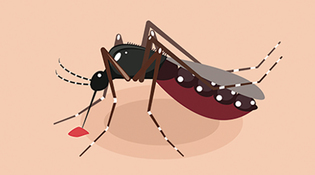 loading
loading
FindingsNoted ShutterstockView full imageAs the planet continues to warm, the number of people who need air conditioning just to stay healthy is steadily rising. Narasimha D. Rao, assistant professor of energy systems at Yale’s forestry and environment school, worked with an international team to come up with an estimate. Their result: between 1.8 and 4.1 billion residents of the Global South are at risk of heat-related problems, and very few of them have access to AC. Shrinking this “cooling gap,” Rao and colleagues write in Energy and Buildings, will take a substantial increase in energy production, AC efficiency, and fan use, as well as better building design and new cooling technologies.
The infection rate of the mosquito-borne Zika virus, which can cause devastating birth defects, is down sharply from a peak several years ago. But there remains “an urgent need for the development of a vaccine” against the pathogen, writes Erol Fikrig, the Waldemar Von Zedtwitz Professor of Medicine, in Nature Microbiology. Fikrig and his Yale colleagues have developed a novel strategy: they identified a protein in mosquito saliva that exacerbates Zika infection in mice, and then developed an antiserum that blocks the protein. Mice injected with the antiserum stayed healthier than other mice. With further work, Fikrig suggests, the new approach could produce not only an effective Zika vaccine but also vaccines for other diseases.
Heart disease can be destructive both physically and financially. A review of 2013–2017 data from the National Health Interview Survey found that almost half of the non-elderly adults afflicted by atherosclerotic cardiovascular conditions had trouble paying their medical bills—even though most of them had health insurance. Nearly a fifth were unable to pay anything at all. Senior author and associate professor of internal medicine Khurram Nasir led the research, along with Harlan Krumholz ’80, director of Yale New Haven Hospital’s Center for Outcomes Research and Evaluation. The work was published in the Journal of the American College of Cardiology. In all, nearly four million adults were affected by what Krumholz called “the financial toxicity of disease.”
The comment period has expired.
|
|